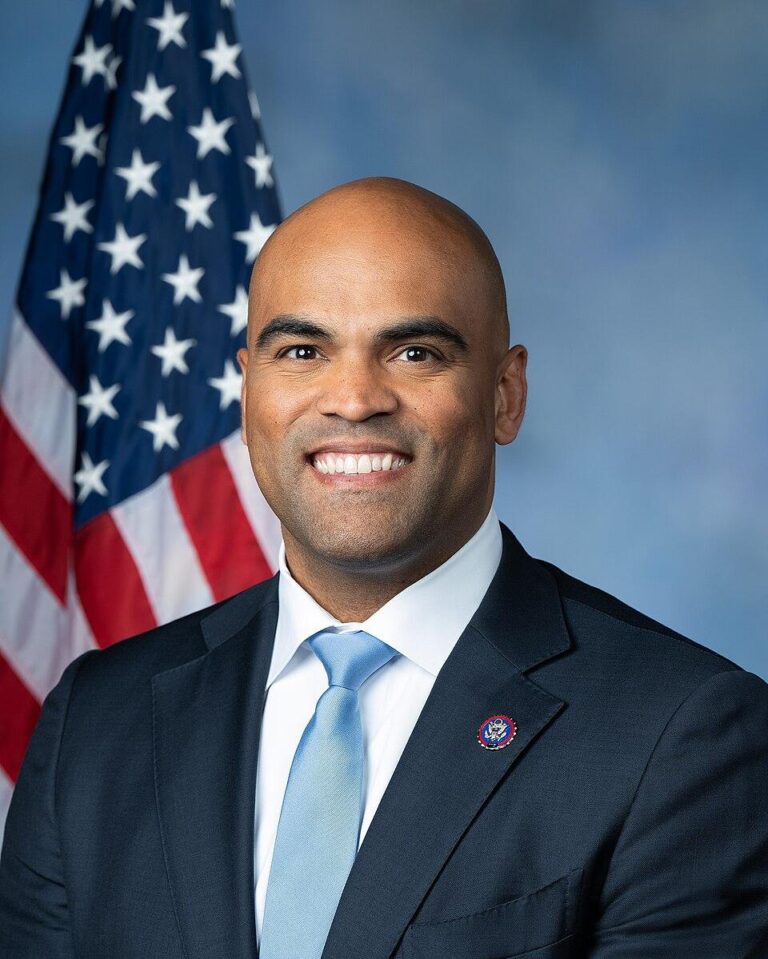Colin Allred: A Rising Progressive Voice Challenging Texas’ Senate Status Quo
Colin Allred, once known for his career as an NFL linebacker, has transitioned into a prominent progressive Democrat aiming to unseat Senator Ted Cruz in the fiercely contested 2024 Texas U.S. Senate race. Representing Dallas and its dynamic suburbs, Allred’s campaign seeks to disrupt decades of Republican dominance in the state. This article delves into Allred’s unique background, his core policy priorities, and the strategic approach he is employing to capture one of the most closely watched Senate seats this election cycle.
From Athlete to Advocate: The Evolution of Colin Allred’s Political Career
Born and raised in Dallas, Colin Allred’s journey from professional sports to public service is marked by a commitment to justice and community empowerment. After a successful stint as an NFL linebacker, Allred pursued a law degree at the University of California, Berkeley, where he specialized in civil rights law. His legal career focused on fighting discrimination and expanding opportunities for marginalized groups, experiences that have deeply influenced his pragmatic and inclusive approach to governance.
Allred’s political breakthrough came in 2018 when he won the congressional seat for Texas’s 32nd District, defeating a long-standing incumbent. Since then, he has been a vocal advocate for expanding healthcare access, improving infrastructure, and protecting voting rights. His growing popularity was evident in his 2020 re-election, where he increased his margin of victory, reflecting his resonance with a diverse and evolving electorate.
| Year | Role | Significant Milestone |
|---|---|---|
| 2018 | U.S. Representative, TX-32 | Unseated incumbent in a pivotal race |
| 2020 | Re-elected Congressman | Expanded voter base and influence |
| 2024 | Senate Candidate | Launching campaign against Ted Cruz |
Progressive Priorities Shaping Allred’s Senate Bid
At the heart of Colin Allred’s Senate campaign lies a commitment to economic fairness, accessible healthcare, and environmental stewardship. He champions the introduction of a public healthcare option to broaden coverage beyond the Affordable Care Act, aiming to reduce the number of uninsured Texans. Economically, Allred supports policies that bolster small businesses, advocate for a livable minimum wage, and address systemic income disparities.
Recognizing Texas’ susceptibility to climate-related disasters, Allred promotes aggressive investments in renewable energy and resilient infrastructure to mitigate the impacts of extreme weather events. His platform also includes comprehensive immigration reform, proposing a balanced approach that offers a pathway to citizenship while enhancing border security with respect for human rights. On criminal justice, he pushes for reforms that tackle systemic inequities and promote community-based safety initiatives.
Navigating the Tough Battle Against Ted Cruz: Challenges and Advantages
Facing Senator Ted Cruz, a well-entrenched figure with strong Republican backing, presents significant obstacles for Allred. Cruz’s established name recognition and loyal conservative base in Texas create a challenging environment for any challenger. To succeed, Allred must not only energize Democratic voters but also appeal to moderates and independents frustrated with the current political climate.
However, several factors work in Allred’s favor:
- Demographic evolution: Texas’ urban centers, including Dallas, are experiencing rapid growth with increasingly diverse and progressive populations.
- Voter dissatisfaction: Controversies surrounding Cruz have led to growing voter fatigue and openness to change.
- Strong fundraising: National Democratic organizations are channeling resources to competitive Texas races, bolstering Allred’s campaign coffers.
- Clear policy contrasts: Allred’s focus on healthcare, education, and economic justice offers voters a distinct alternative.
| Obstacles | Opportunities |
|---|---|
| Entrenched GOP loyalty to Cruz | Expanding urban, diverse electorate |
| High costs of campaigning statewide | Robust national Democratic fundraising support |
| Cruz’s media savvy and debate experience | Ability to introduce fresh policy narratives |
| Incumbency advantage and recognition | Growing voter frustration with divisive politics |
Innovative Voter Outreach Strategies in Texas
Maximizing voter turnout in Texas requires a multifaceted approach that combines traditional grassroots efforts with cutting-edge digital engagement. Campaigns like Allred’s are deploying targeted outreach in neighborhoods with historically low participation, emphasizing the critical impact of each vote on Texas’ political future. Techniques such as door-to-door canvassing, multilingual phone outreach, and community gatherings foster genuine connections with voters.
Partnerships with local nonprofits, faith-based groups, and civic organizations enhance message penetration by ensuring cultural relevance and trust. On the digital front, social media campaigns and data-driven analytics enable rapid identification and mobilization of potential supporters. Interactive online tools provide voters with clear information on registration, polling locations, and election deadlines, helping to dismantle barriers to participation.
| Engagement Method | Region | Outcome |
|---|---|---|
| SMS Text Campaigns | Dallas Metro Area | +20% Increase in Voter Engagement |
| Community Town Halls | Houston | Over 1,500 Participants |
| Social Media Educational Drives | Statewide | 20,000+ Shares and Interactions |
Conclusion: The Stakes of the Texas Senate Race
As the 2024 midterm elections approach, Colin Allred stands out as a compelling challenger to Senator Ted Cruz, bringing a blend of legal expertise, public service, and progressive vision to the forefront. His campaign not only reflects the shifting demographics and political attitudes within Texas but also signals broader national trends toward more inclusive and equitable governance. The outcome of this race will be pivotal, influencing Texas’ political trajectory and contributing to the balance of power in the U.S. Senate.







